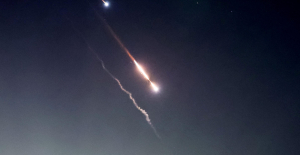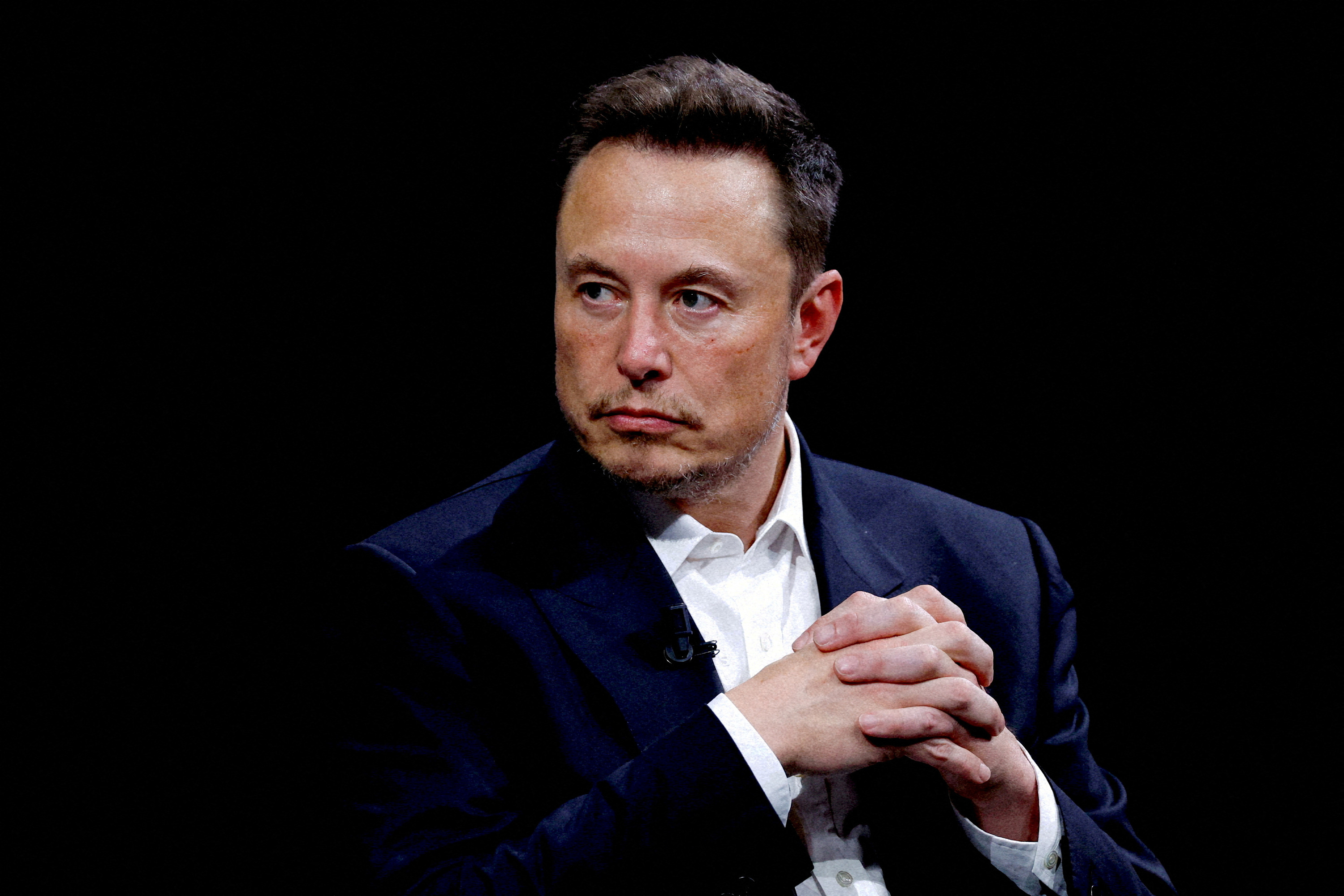A lesson from the economic dependency on Russia should actually be that Germany should not maneuver itself into a similar situation again and at least question its ties with autocratic states more critically. However, the visit of Olaf Scholz with a number of business representatives to Beijing and the planned Chinese participation in a Hamburg port terminal speak a different language. So has the chancellor learned nothing?
Anne Will discussed this on Sunday evening in her ARD talk show. "Get out of the dependency on autocrats - how serious is Chancellor Scholz about the turning point?" she asked. In the studio, Green leader Omid Nouripour (Greens) and the first mayor of Hamburg, Peter Tschentscher (SPD), defended the government policy, while Norbert Röttgen (CDU), the economist Stormy-Annika Mildner and "Spiegel" journalist Melanie Amann followed up critically.
Scholz himself sees his trip as a success, among other things, because China's head of state Xi Jinping spoke out against the use of nuclear weapons for the first time, which he interprets as a clear signal in the direction of Putin. Right? "No," said Röttgen. That was also clear beforehand. “China has no interest in a further escalation of the war, certainly not a nuclear one. "I'm sure Xi Jinping made that clear to Putin before."
Instead, the Union's foreign politician reiterated criticism of the Chancellor. He particularly disliked the chancellor's "solo trip" without French President Macron. “A joint appearance would have been a strong signal. So it was the rejection of 'Zeitenwende', business as usual, we do business, we increase dependency after we had the dependency experience in Russia. It was a German solo effort that cost trust and caused damage to foreign policy.”
As expected, Peter Tschentscher defended his party leader. The trip also served Scholz to address many critical issues. "It wasn't so clear that China would distance itself from nuclear development," he contradicted. "It's both continuity and change," Mildner tried to bridge the gap. In times of geopolitical tensions, it is understandable to seek dialogue, but the timing is debatable and traveling with a largely uncritical business delegation is questionable.
“China is still an important sales market, but we also have to send a clear signal that the dependencies are dangerous. Russia's war of aggression must be a wake-up call," said Mildner. China is developing more and more in the direction of dictatorship, so clear red lines have to be drawn.
Amann was even clearer. The opinionated journalist suspected that Scholz did not yet know how to deal with China in order to free Germany from its dependency. "Driving there in such a moment of uncertainty, allowing oneself to be exploited by the party propaganda there and giving a seal of approval for Xi Jinping's autocracy is very questionable for Germany's role in Europe."
Amann even wanted to see a common thread in the Chancellor's politics. "The trip is a leitmotif of Scholz's foreign policy. What he himself considers right is thrown in the face of the European partners. He goes on the journey and if the others are too dumb to see the ingenious strategy, they're out of luck," she commented.
Will wanted to know from Green leader Nouripour whether Scholz was implementing the China policy of the traffic light coalition or his own. "It's always good when heads of government talk to each other to reduce tensions," he said, initially in an emphatically diplomatic manner. However, he also found critical tones and made it clear that the traffic light had decided on a different China policy and that this could have been emphasized even more strongly during the visit.
Nouripour defended his party friend Annalena Baerbock. During a press conference prior to the trip, the Foreign Minister called on Scholz to clarify the government's critical stance and was criticized for this by government representatives. "She rightly pointed out that in order for us to work together, there is a need to address the issue of human rights and China must be bound by international rules," Nouripour said.
A found feast for Röttgen. “The coalition paints a picture of disunity. There's little point in denying that," he put his finger in the wound. “Ms. Baerbock likes to write the China policy, on paper. But the chancellor just does it in a basta solo course.” He was also alluding to the sale of a Hamburg port terminal, which Scholz had pushed through against the resistance of six ministries.
Peter Tschentscher felt compelled to clarify. “It is repeatedly falsely claimed that China is buying into critical infrastructure. That is not the case.” The terminal company, in which China has a stake, does not own any infrastructure. You have only leased port areas for a limited period of time. “China has zero influence and zero ownership of critical infrastructure. It is a very justifiable decision.”
"It's a giant, it has a toe in the door now," criticized Amann. “China is pursuing a strategy of global maritime dominance and they are saying so quite officially.”
Röttgen emphatically agreed and warned to look at the big picture: “Land and property are irrelevant facts. China is trying to change international relations and is creating a global network of influence and dependencies.”
And even Nouripour did not let Tschentscher's arguments go through. "In the end, any increased dependence on autocrats is bad for all of us, including for Hamburg."

 Torrential rains in Dubai: “The event is so intense that we cannot find analogues in our databases”
Torrential rains in Dubai: “The event is so intense that we cannot find analogues in our databases” Rishi Sunak wants a tobacco-free UK
Rishi Sunak wants a tobacco-free UK In Africa, the number of millionaires will boom over the next ten years
In Africa, the number of millionaires will boom over the next ten years Iran's attack on Israel: these false, misleading images spreading on social networks
Iran's attack on Israel: these false, misleading images spreading on social networks New generation mosquito nets prove much more effective against malaria
New generation mosquito nets prove much more effective against malaria Covid-19: everything you need to know about the new vaccination campaign which is starting
Covid-19: everything you need to know about the new vaccination campaign which is starting The best laptops of the moment boast artificial intelligence
The best laptops of the moment boast artificial intelligence Amazon invests 700 million in robotizing its warehouses in Europe
Amazon invests 700 million in robotizing its warehouses in Europe Switch or signaling breakdown, operating incident or catenaries... Do you speak the language of RATP and SNCF?
Switch or signaling breakdown, operating incident or catenaries... Do you speak the language of RATP and SNCF? Transport in Île-de-France: operators are pulling out all the stops on passenger information before the Olympics
Transport in Île-de-France: operators are pulling out all the stops on passenger information before the Olympics Radio audiences: France Inter remains firmly in the lead, Europe 1 continues its rise
Radio audiences: France Inter remains firmly in the lead, Europe 1 continues its rise Russian cyberattacks pose a global “threat”, Google warns
Russian cyberattacks pose a global “threat”, Google warns A new Lennon-McCartney duo, more than 50 years after the Beatles split
A new Lennon-McCartney duo, more than 50 years after the Beatles split The Curse vs Immaculée: two thrillers but only one plot
The Curse vs Immaculée: two thrillers but only one plot Mathieu Kassovitz adapts The Beast is Dead!, the comic book about the Second World War and the Occupation by Calvo
Mathieu Kassovitz adapts The Beast is Dead!, the comic book about the Second World War and the Occupation by Calvo Goldorak 'has never lived so much as now'
Goldorak 'has never lived so much as now' Skoda Kodiaq 2024: a 'beast' plug-in hybrid SUV
Skoda Kodiaq 2024: a 'beast' plug-in hybrid SUV Tesla launches a new Model Y with 600 km of autonomy at a "more accessible price"
Tesla launches a new Model Y with 600 km of autonomy at a "more accessible price" The 10 best-selling cars in March 2024 in Spain: sales fall due to Easter
The 10 best-selling cars in March 2024 in Spain: sales fall due to Easter A private jet company buys more than 100 flying cars
A private jet company buys more than 100 flying cars This is how housing prices have changed in Spain in the last decade
This is how housing prices have changed in Spain in the last decade The home mortgage firm drops 10% in January and interest soars to 3.46%
The home mortgage firm drops 10% in January and interest soars to 3.46% The jewel of the Rocío de Nagüeles urbanization: a dream villa in Marbella
The jewel of the Rocío de Nagüeles urbanization: a dream villa in Marbella Rental prices grow by 7.3% in February: where does it go up and where does it go down?
Rental prices grow by 7.3% in February: where does it go up and where does it go down? Europeans: the schedule of debates to follow between now and June 9
Europeans: the schedule of debates to follow between now and June 9 Europeans: “In France, there is a left and there is a right,” assures Bellamy
Europeans: “In France, there is a left and there is a right,” assures Bellamy During the night of the economy, the right points out the budgetary flaws of the macronie
During the night of the economy, the right points out the budgetary flaws of the macronie Europeans: Glucksmann denounces “Emmanuel Macron’s failure” in the face of Bardella’s success
Europeans: Glucksmann denounces “Emmanuel Macron’s failure” in the face of Bardella’s success These French cities that will boycott the World Cup in Qatar
These French cities that will boycott the World Cup in Qatar Champions League: semi-final schedule revealed
Champions League: semi-final schedule revealed Serie A: AS Roma extends Daniele De Rossi
Serie A: AS Roma extends Daniele De Rossi Ligue 1: hard blow for Monaco with Golovin’s premature end to the season
Ligue 1: hard blow for Monaco with Golovin’s premature end to the season Paris 2024 Olympics: two French people deprived of the Olympic Games because of a calculation error by the international federation?
Paris 2024 Olympics: two French people deprived of the Olympic Games because of a calculation error by the international federation?


















